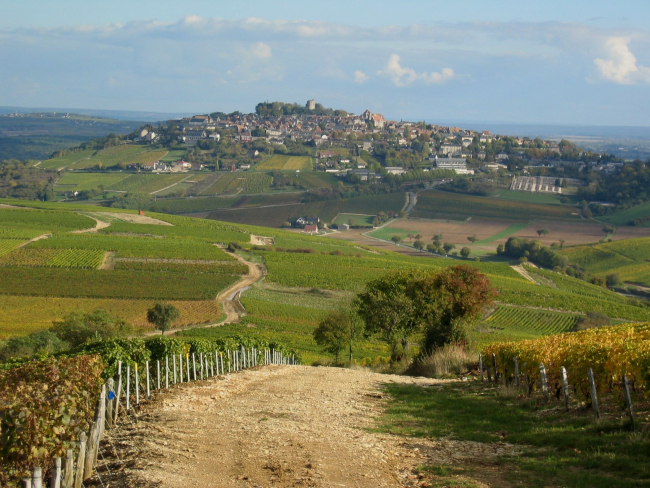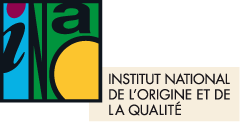This article is older and has been archived.
It remains accessible, but the information provided may be out of date or incorrect.
Defense and management organization
New CAP "omnibus" regulation: what impact on SIQOs? [ODG]
The INAO has been involved in European negotiations on the new CAP "omnibus" regulation. In particular, it aims to introduce greater harmonization between PDOs/PGIs in the wine sector and those for other agri-food products. Other long-awaited changes have also been made. Here's an update on these new regulations.

Regulation (EU) no. 2021/2117 of December 2, 2021, the so-called "omnibus" regulation, is particularly concerned with SIQOs, notably by amending the part relating to PDOs and PGIs in the wine sector in Regulation (EU) no. 1308/2013 on the common organization of the market in agricultural products and Regulation (EU) no. 1151/2012 on PDOs, PGIs and TSGs applicable to agricultural products and foodstuffs.
During the negotiations, a proposal was made to amend the definition of PDO. It aimed to very strongly attenuate the impact of human factors and could lead to products being recognized as PDO on the basis of natural factors alone. Joint action by professionals, the administration and members of parliament enabled the current PDO definition to be maintained in the regulation.
Harmonization of rules between PDOs/PGIs in different sectors
- It is expressly stipulated that PDO and PGI specifications may contain a description of the contribution of the PDO or PGI to sustainable development.
- All PDO or PGI products benefit from the extension of the Rules for Regulating Supply (RRO), hitherto reserved for wines, dairy products and dry hams.
- Introduced in 2019 for the wine sector, the notions of "Union" and "standard" specification modifications are extended to PDOs, PGIs and TSGs for other agri-food products.
- "Standard" modifications are directly approved by the Member State and apply from the publication of the homologation order.
- "Union" modifications are subject to investigation by the European Commission, a Europe-wide opposition procedure. They come into force on registration at European level, published in the Official Journal of the European Union (OJEU). They concern:
- changes to denominations;
- changes that risk "annihilating the link";
- changes that involve new marketing restrictions.
- all changes to TSG specifications
As these concepts are new to the agri-food sector, they will apply to applications submitted on or after June 8, 2022. The regulations implementing Regulation 1151/2012 will be amended to set out the procedure to be followed by member states.
- Member states are obliged to inform the Commission in the event of contentious actionagainst a pending registration application. In such cases, the Commission is not bound by the time limits for investigation and awaits the outcome of the proceedings.
- The protection of PDOs and PGIs is extended to goods sold at a distance (e-commerce) and to those entering EU territory without being released for free circulation.
Specific changes to the wine sector...
- Wines obtained fromvine varieties resulting from a cross between Vitis vinifera and other species of the genus Vitis may qualify for PDO.
- Wines that have undergone partial dealcoholization may qualify for PDO or PGI, if their specifications so permit.
- Several articles on growth potential via vine plantings have been amended, including:
- The extension of the regulation until December 31, 2045, with two interim reviews in 2028 and 2040 to enable the procedure to be evaluated and possible changes made.
- Member states may decide to extend the period of validity of replanting authorizations to six years, where replanting takes place on the grubbed-up plot or plots. In such cases, authorizations must specify the parcel or parcels that have been grubbed up and replanted.
- Specifications are provided on temporary labeling arrangements. National logos or indications (AOC) can be used when PDO or PGI registration is in progress. European logos and terms such as "Protected Designation of Origin" or "Protected Geographical Indication" cannot be used on labels until the designation has been registered at European level. If registration is refused by the European Commission, operators can sell off labels using national logos or indications until stocks are exhausted.
- The protection of PDO/PGI used as ingredients is extended, where commercial use of the name results in a weakening or attenuation of its reputation.
- Nutritional declaration (which may be limited to energy value) and indication of the list of ingredients on wine labels are now mandatory.
... and for other agri-food products
- The scope of the regulation is extended to flavored wines. These products may benefit from a PGI but not a PDO.
- The rules of application in the event of conflict with a variety or breed are specified.
- Protection is extended to TSGs used as ingredients, and transitional periods may be granted to TSGs under the same conditions as PDOs and PGIs.
- PDO and PGI protection is extended where commercial use of the protected name results in a weakening or attenuation of its reputation.
All news dedicated to ODGs
The INAO's Délégation territoriale Occitanie is organizing another regional meeting with local ODGs on Wednesday, June...
News
News
INAO is launching a new campaign to promote the 5 official signs of quality and origin (SIQO) to the general public...
News

News
The Val-de-Loire territorial delegation of the INAO is organizing another regional meeting with local ODGs on Tuesday...
News

News
